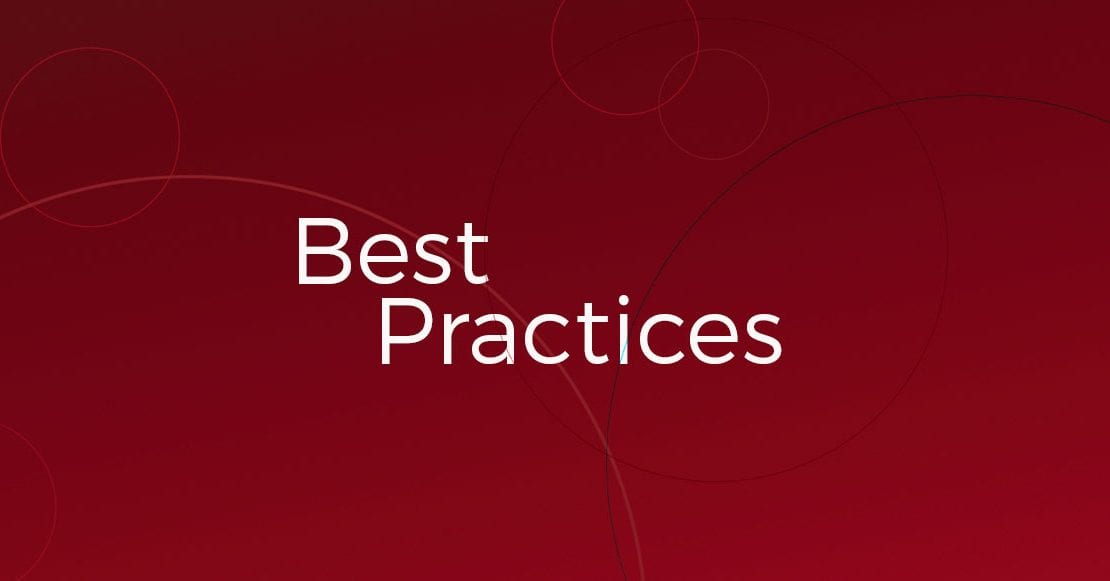For some a crisis may result in incredibly busy periods; for others it may mean they actually have more time than usual. If you are currently working from home due to COVID-19, you may find yourself in both of these positions throughout the course of a week. Your clients may be more in need of your time than usual; at the same time, you’re likely engaged in fewer extracurricular activities and spending little to no time commuting.
If you do find that you currently have extra time that you would like to spend in an effort to improve the quality of your work life, your processes, etc., we’re offering this as the fourth in a series of posts we hope you’ll find useful (the first is available here, the second here, and the third here). Maybe all of these ideas won’t apply to you; maybe you already practice some of them. Either way, if we can help you bolster any area of your business through any of these suggestions, that will be pandemic downtime well spent.
In our fourth and final post in this series, we’ll turn our attention to a project that can help you not only with all of the other projects in this series, but also with everything you do moving forward: recalibrating your focus.
It’s more important than ever to focus on the essentials
Steve Jobs once said:
People think focus means saying yes to the thing you’ve got to focus on. But that’s not what it means at all. It means saying no to the hundred other good ideas that there are. You have to pick carefully. I’m actually as proud of the things we haven’t done as the things I have done. Innovation is saying no to 1,000 things.
What does this mean for you as an advisor? Are you actively determining what you focus upon each day or is your focus easily swayed by your email inbox or staff members who may have different priorities for their day? What tasks are you performing that can easily be delegated and performed as well by others in your office that free you up to spend more time on relationship maintenance/building and new client acquisition?
If you have support staff, including administrative staff, associate advisors, and/or paraplanners, you should prioritize logging everything you do in a given week and then determining which of your tasks might be delegated across some combination of those roles.
If, on the other hand, you are a solo advisor, with no support staff, the question of focus might revolve around your clients themselves. Are you properly allocating the time you spend with your clients based upon the value each of them bring to your business? Are you spending an inordinate amount of time with difficult clients who bring little in value? Are you spending enough time with those you enjoy working with who do bring value? These, of course, are questions based upon the Pareto Principle, aka the 80/20 Rule, and, while they aren’t necessarily easy to resolve (all of your clients must be serviced), allocating your client focus based upon the value they bring to your business may sharpen, over time, your ability to bring in more of the types of clients that have proven to be a great match for your firm.
Three places to start
Map out how you are spending your time.
Spend a week logging your work activities every day. When the week is up, really take a close look at how you spent your time to determine if there are tasks you can 1) delegate if they are important or 2) eliminate if they are not. You might also pay attention to how scattershot your approach to work is – are you constantly jumping from one project or activity to the next, without doing any substantive deep work or research or client engagement activities? If so, it may be time to consider time blocking.
Begin using a time blocking (or chunking) system.
It’s always good to have a to-do list, broken down by day, ready to go before you start each week, along with the understanding that less important items for a given day may get pushed to the next (though if items keep getting pushed they may be candidates for delegation). It’s also helpful to set aside specific chunks of time for specific tasks that you have to do each day. Assigning a specific time for something attaches importance to it in your mind – you’re much less likely to let the 2:00-3:00 hour slip by as you engage in other less important tasks if that’s the time you reserved for its completion.
Get emails and meetings under control.
One of the best ways to give yourself permission to begin using a time blocking system for work is by getting emails and meetings under control.
Emails come in constantly; that isn’t going to change. What you can change is your pattern of checking emails. If it’s possible, authorize someone on the administrative side of things in your office to screen your emails and flag the ones you need to deal with. Regardless of whether or not this is feasible in your situation, at the very least you should time block specific periods for dealing with email, and stick to them. If you can avoid even looking at your email until you’ve accomplished one major item on your daily list, you’ll be ahead of much of the game.
Meetings as well should be reexamined to ensure that they are the best use of your time. If meetings have been haphazard in your office in the past, it may be time to institute a policy moving forward that all meetings must have a clearly defined purpose, explicit start and end times, and an employee authorized to halt sideline conversations that don’t support the meeting’s purpose. Important work can be accomplished in meetings, but that certainly isn’t always the case; you should carefully consider what is happening in your office’s meetings to determine the types that might be shortened, the types that don’t necessarily need everyone present, and the ones that might be eliminated altogether.
Focus is an everyday choice
”You have to pick carefully” where you put your focus, Jobs said. We read that as an emphatic endorsement of the idea that focus is an ongoing act of agency, i.e., you will always have to choose where you place your focus (or others will choose where you place it for you). Misplaced focus at times may not necessarily cause your business to fail, but it certainly won’t contribute to your successes. A new emphasis on focus, however, can lead to a more streamlined approach to your practice where the tasks and projects you say “yes” to drive new successes moving forward.


